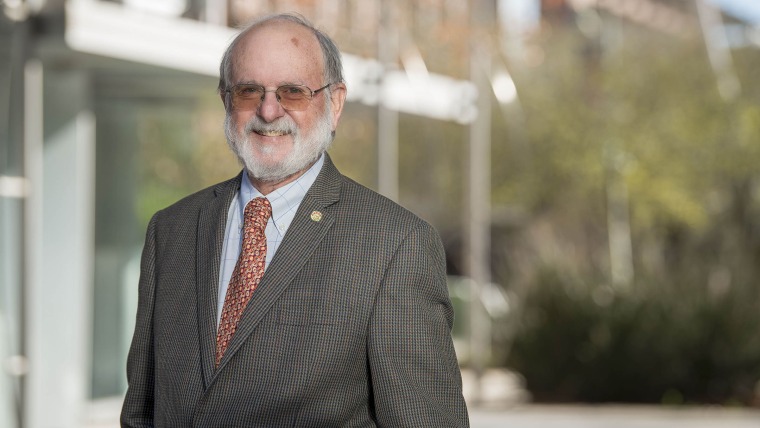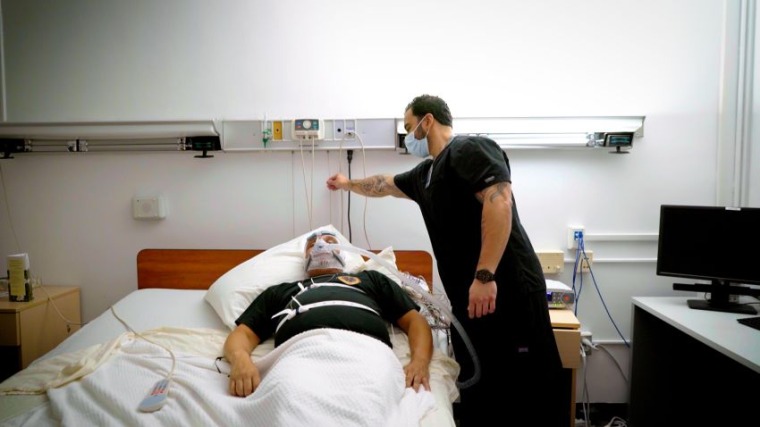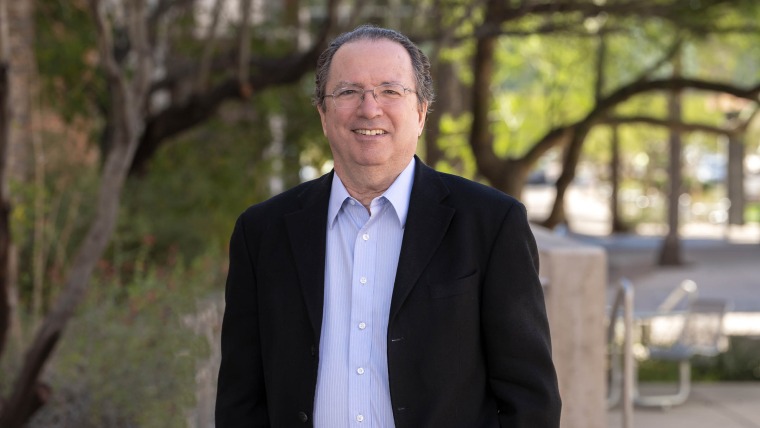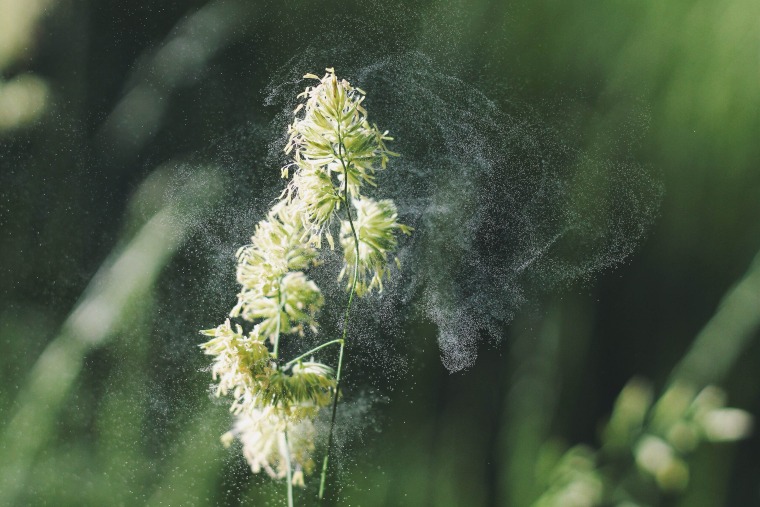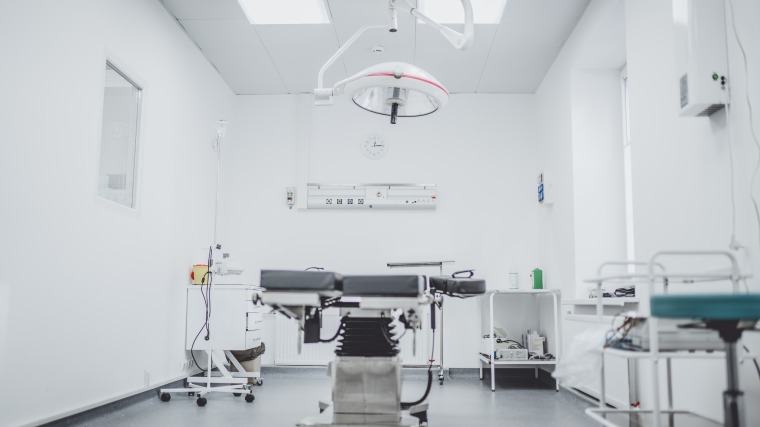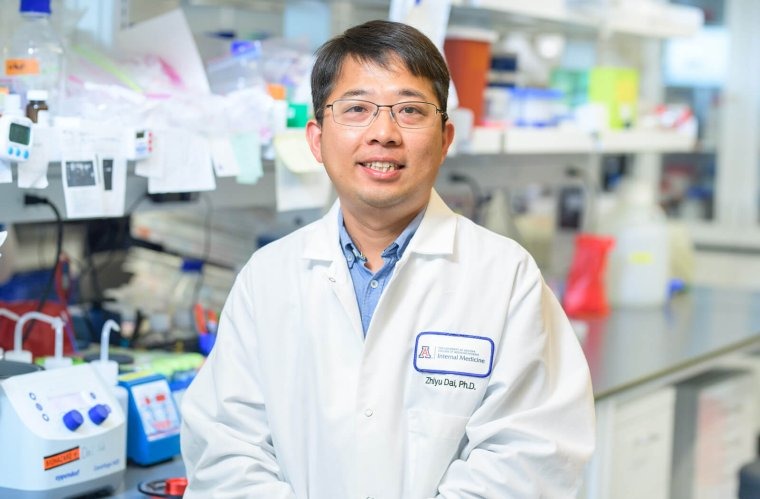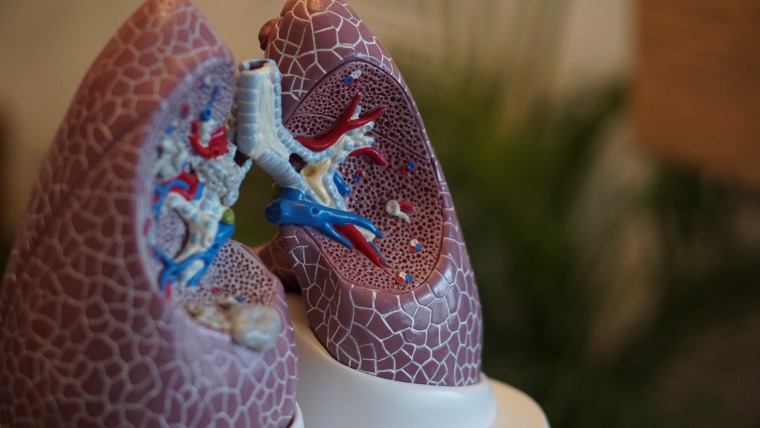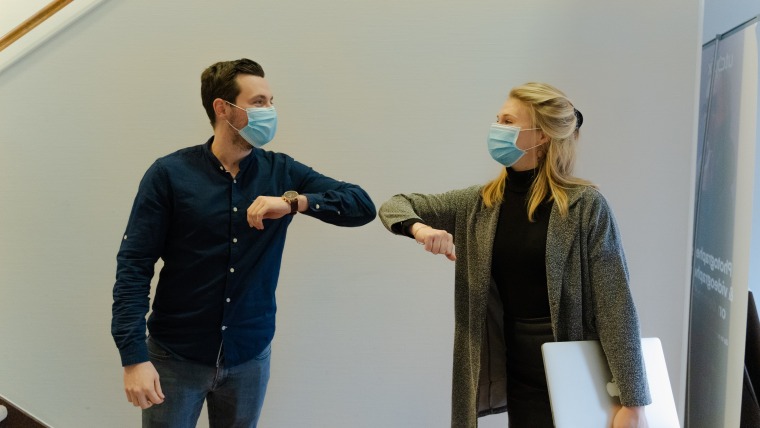UArizona Researchers Team Up to Address COVID-19 with the Help of TRIF and BIO5 Support
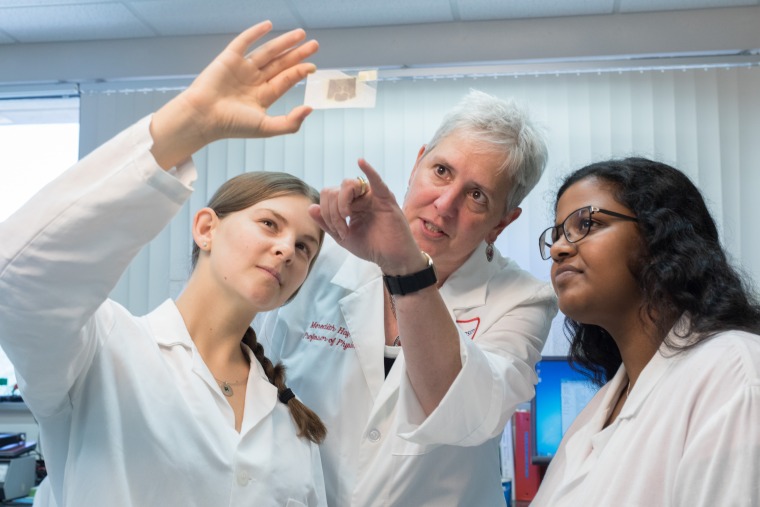
As of April 28, more than 6,500 COVID-19 cases have been reported in the state of Arizona. To address this burden on a local and global scale, thirteen UArizona teams have been awarded more than half a million dollars to explore virology, prevention and treatment, epidemiology, and psychology associated with COVID-19.
For nearly 20 years, the Technology and Research Initiative Fund (TRIF) has enabled UArizona researchers to conduct high-impact work by building up the scientific expertise and specialized equipment capacity at UArizona that allows swift response to scientific crises such the COVID-19 pandemic. In the last four year cycle, projects in infectious disease, immune system, and respiratory function have been seeded with over $5.8M.
As a rapid response to the pandemic, TRIF resources were quickly used to establish a seed grant mechanism. Interdisciplinary teams of two or more researchers representing their individual colleges and the BIO5 Institute were encouraged to pitch basic science, technology, clinical or population-based research projects that directly addressed COVID-19.
Fifty-five teams submitted seed grant applications. Their proposals were judged on potential impact, teamwork and use of core facilities.
Thirteen successful applicants were awarded up to $60K each. Over the next six months, teams will quickly pivot their existing research and draw upon their unique skills to address wide-ranging aspects of the pandemic.
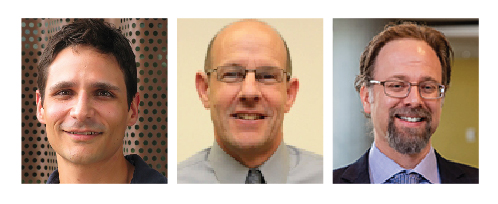
Genetics, Evolution and the Viral Lifecycle
Representing the College of Medicine – Tucson, Samuel Campos, Scott Boitano and Ken Knox will study an evolutionarily adapted aspect of the novel coronavirus. By understanding the modification of a key viral structure, Campos, Boitano and Knox aim to provide insight on infection and disease spread. Data and knowledge generated from their work may inform potential prevention and treatment strategies.
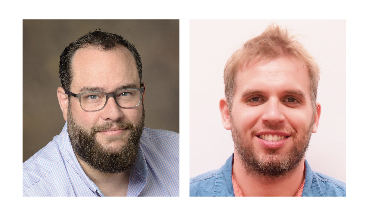
Identifying Potential COVID-19 Therapeutics through Image-Based Screening
Curtis Thorne, assistant professor in the Department of Cellular and Molecular Medicine, and Koenraad Van Doorslaer, assistant professor in the College of Agriculture and Life Sciences, will use image-based screening to identify compounds that prevent viral replication in lung cells. They’ll also develop a technique to study replication of the novel coronavirus and plan to share it with other UArizona researchers studying COVID-19.
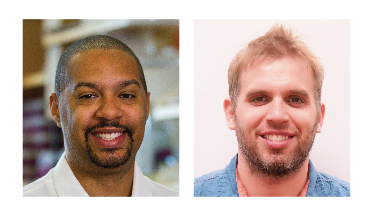
The Use of Copper in Preventing Viral Persistence
Not just a coating for pennies, copper has been shown to have a negative effect on the novel coronavirus. Virologist Van Doorslaer will also team Michael Johnson, assistant professor of immunobiology, to investigate the ability of copper compounds to prevent the infection and replication of a related coronavirus. If successful, the team will test successful compounds against the novel COVID-19 virus.
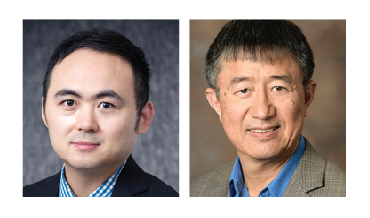
Improving Efficacy and Minimizing Toxicity of Anti-Malarial Drugs Against COVID-19
Chloroquine and hydroxychloroquine, two anti-malarial drugs, have shown promise as COVID-19 treatments through clinical studies in France, Italy and China. However, researchers are concerned about the safety and effectiveness of these compounds. Jianqin Lu and Xinxin Ding of the College of Pharmacy will use nanotechnology to improve the delivery of these drugs. Through this method, they aim to enhance drug efficacy and minimize toxicity.
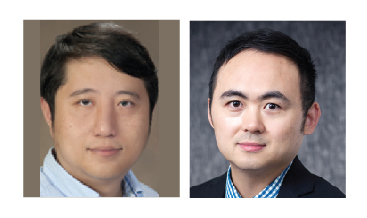
Boosting the Immune System to Combat COVID-19
Directly targeting the virus is just one strategy researchers can use to treat COVID-19. Because of the severe gap in knowledge regarding the novel coronavirus, some researchers propose that developing a virus-targeted approach may not be quickly achievable. Instead, Lu will team with Yin Chen to explore whether enhancing COVID-19 patients’ immune systems can treat their infections.
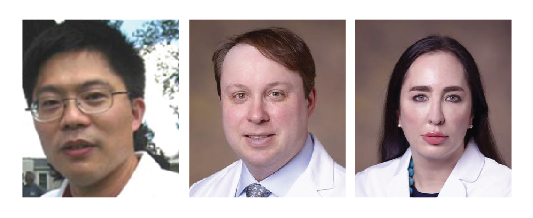
Novel Compounds to Enhance Anti-COVID-19 Activity and Safety
Because clinical studies of anti-malarial drugs have provided uncertain evidence regarding their utility, a third pharmacy team will test novel inhibitors in treating existing infections. Wei Wang, Steffan Nawrocki and Jennifer Carew will use the anti-malarial drugs as the foundation for designing similar, yet distinct compounds. By doing so, these experts in drug discovery and viral biology aim to identify new compounds which may prove to be safer and more efficacious.
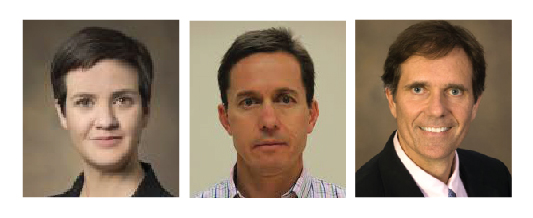
A Local Patient Database to Study Local COVID-19 Impact
Researchers representing medicine, pharmacy and the Mel and Enid Zuckerman College of Public Health will collect COVID-19 patient data from BUMC-T inpatient and BUMC Family Medicine Clinics. With this information, Karen Lutrick, Dean Billheimer and Brian Erstad will create a local database to allow for a greater understanding of disease impact on our local health system. Further, this database will provide a useful tool for future COVID-19 UArizona research efforts.

Creating Foundations to Understand COVID-19 in Arizona
A public health team will also create a database to better understand the short- and long-term impacts of COVID-19 in our area. Kristen Pogreba-Brown, Kate Ellingson, Pamela Garcia-Filion, Elizabeth Jacobs and Kacey Ernst will collect data from patient interviews to determine acute risk factors and disease symptoms. They will also initiate a long-term study to generate a database that can be used by all Arizona investigators addressing COVID-19.
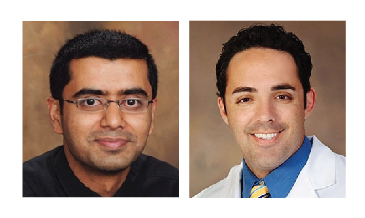
Characterization of Critically Ill COVID-19 Arizonan Patients
Because our current understanding of the disease is limited to emerging, highly variable case reports, a third team will produce a database with information on hospitalized COVID-19 patients in our state. Vignesh Subbian, assistant professor in the College of Engineering will work with Jarrod Moiser of COM-T to compile patient characteristics and document the safety of their care. Through their efforts, they aim to better understand the clinical characteristics and courses of seriously ill COVID-19 patients in Arizona.
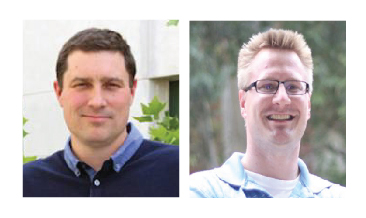
Using Genetics to Study the Origin and Spread of COVID-19 in Southern Arizona
To date, only one viral genome has been recorded for Arizona COVID-19 cases. Michael Worobey and David Baltrus plan to add nearly 40 more genomes to GenBank, a repository curated by the National Institutes of Health. In addition to contributing data, the group seeks to understand the relationship of the Arizona outbreak to the national epidemic. By comparing viral genomes across the country, the group plans to determine origin of COVID-19 in Southern Arizona and the number of transmission chains in the area.
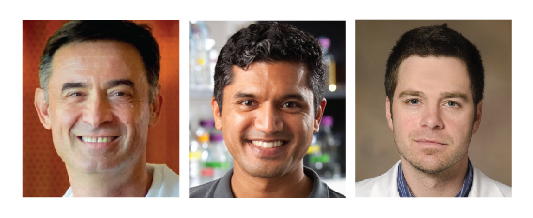
Understanding Vulnerability to COVID-19
The novel coronavirus is highly infectious in older adults and those with pre-existing critical health conditions. The reasons for this vulnerability are currently unknown. Immunobiology department head Janko Nikolich- Žugich and associate professor Deepta Bhattacharya will work with Craig Weinkauf, assistant professor in the Department of Surgery, to determine the links between these populations and COVID-19 susceptibility.

COVID-19 Risk in Wastewater Treatment Facilities
In addition to traveling through droplets in the air generated by a sneeze or cough, the novel coronavirus passes through the feces of infected individuals. These live viruses can become airborne in wastewater treatment plants, posing a threat to facility workers. A team of five researchers – Luisa Ikner, Walter Betancourt, Jeff Prevatt, Kelly Reynolds and Ian Pepper – will study the risk of the airborne virus to facility worker health.
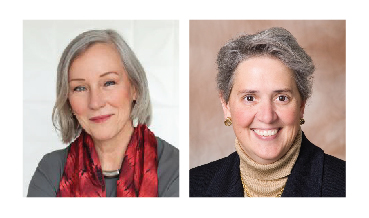
COVID-19 and Brain Function
A hallmark of COVID-19 is the impairment of respiratory function. However, a fourteenth project will assess the cognitive impact of COVID-19. Funded by the Center for Innovation in Brain Science, Lee Ryan of the COS and Meredith Hay of the COM-T will utilize an existing database of over 50,000 individuals to understand brain-related impacts of the infection.
About the University of Arizona BIO5 Institute
The BIO5 Institute at the University of Arizona connects and mobilizes top researchers in agriculture, engineering, biomedicine, pharmacy, basic science, and computational science to find creative solutions to humanity’s most pressing health and environmental challenges. Since 2001, this interdisciplinary approach has been an international model of how to conduct collaborative research, and has resulted in disease prevention strategies, promising new therapies, innovative diagnostics and devices, and improved food crops.
For more information: BIO5.org (Follow us: Facebook | Twitter | YouTube | Instagram | LinkedIn).


